FINCA’s Robinah Siima: Redefining CFO Leadership with Heart, Hustle, and Strategy
Let’s start by getting to know you a little better. Can you tell us about yourself—especially the things most people might not know?
Yes, thank you so much. My name is Robinah Siima, and as you’ve mentioned, I am the Chief Financial Officer of FINCA Uganda. FINCA is a financial institution and part of the global FINCA International network, dedicated to providing financial services and empowering low-income entrepreneurs to build sustainable livelihoods. I’m incredibly proud to serve as FINCA Uganda’s first female CFO—a milestone that’s truly exciting for me. But beyond my role at FINCA, there’s more to who I am. I’m deeply passionate about children.
Outside of my professional work, I dedicate a lot of my time to children’s activities. I serve on school boards and leadership teams, which allows me to stay closely connected to society and the education sector. This involvement not only offers a refreshing balance to my CFO responsibilities but also gives me the opportunity to contribute to strategies that support the holistic development of children.
I’m also a mother of three—a Nine-year-old, a Seven-year-old, and a Five-year-old. It’s been such an incredible and transformative journey—one of the most meaningful aspects of my life. Balancing motherhood with a career in finance has been a challenge, but it’s also taught me invaluable lessons. Being a perfect mom? That’s impossible. But I strive every day to be as close as possible to that ideal.
And yes, I love having fun! Whether it’s watching movies, enjoying quiet moments, or being in places where kids are playing, that’s where you’ll find me. My passion for children and my love for life continue to inspire and energise me every day.
As a parent, you often have to show a mix of love, guidance, and firmness—sometimes even tough love. Do you find that this approach influences your leadership style at work? And if so, how does your parenting philosophy shape how you lead your team?
Yes, the answer is definitely yes. And as strange as it may sound, the relationship I have with my kids at home is almost a mirror of the relationship I have with my colleagues and team at work. I think that’s one of the unique traits I bring to my leadership as a CFO—this ability to blend structure with warmth.
At home, I’m very intentional. Playtime is playtime, work time is work time. Even at their young ages, my kids have plans and schedules, but we also make time to run around, play, and enjoy each other’s company. I bring the same approach to my workplace. If you visited FINCA Uganda today, my team would probably tell you that I’m one of those leaders who creates a great balance—one moment we’re laughing together, and the next, I’m asking, “Where is that report?” My team understands this rhythm, and it’s helped me integrate well with them, build strong relationships, and ultimately get the best out of them.
How do you manage to maintain that delicate balance, knowing when to switch between fun and work, especially given the pressure of being a CFO, where you and the CEO are often at the centre of everything, aware of all the challenges and opportunities in the organisation? How do you ensure that stress from work doesn’t spill over into your personal life, and vice versa?
I must admit, I’ve had my fair share of challenges. It’s something we don’t talk about Much, but it’s true. I’ve faced struggles, especially in the early days. However, I’ve been fortunate to have a strong foundation from my career background, having started out at Ernst & Young, one of the top 4 global audit firms. And I can say without a doubt, EY was intense. The pressure was real! I often joke that I’d wake up at 2 a.m., hugging my laptop. That was the reality for five years—non-stop pressure.
So, when I crossed into banking, I remember thinking, Wow, this is such a relief! It felt like a completely different world. But even there, I still struggled to adjust. I had come from such a high-pressure environment, and that intensity could have easily spilt into my personal life.
But I had to make a change. I realised that life is about choices, and I could create a routine that worked for me. I had to retrain myself—especially after having my first baby. By the time I had three children, I had no choice but to find a new way of living.
Imagine coming home exhausted after a long day, working late nights with global teams—sometimes it’s 4 a.m. here, and it’s morning for them. Meanwhile, my kids are waiting for me to play with them. It was a lot to manage.
So, I had to adjust my life to make it work. Honestly, it’s been a journey—a learning process. But over the last two years, I’ve made real progress. I now strictly stick to balance: after 5 p.m., I switch to family mode. Before that, I’m fully in work mode. That’s how I make it work.
So, next time I have an issue and I want to call you—does that mean I shouldn’t reach out after 5 p.m.?
You can only call me after 5 p.m. if it’s work-related and urgent. During working hours—between 8 a.m. and 5 p.m.—I’ll pick up every call and respond to everything. But once I step into home mode, I don’t even carry my laptop home. That’s just how I draw the line. I use my phone sometimes to respond to urgent matters, but that’s it.
Let’s talk about your journey into finance. Did the profession choose you, or did you choose it? At what point did you decide that this was the path you wanted to pursue—or was it something you stumbled into along the way?
It’s actually a very interesting story—one I believe was simply God’s plan for me. You see, the profession didn’t choose me—I chose it.
Back in high school at Mt. St. Mary’s College Namagunga, based on my grades and academic performance, everyone thought I was destined to pursue Arts or Law. My parents had their own ideas—up until Senior Five, my dad was convinced I was going to be a doctor. That was his dream for me. But deep down, I knew that wasn’t for me—I couldn’t even imagine touching blood!
By Senior Four, something else had already started shaping my path. My dad, a businessman, would often ask me to help him with his electronics business—calculating how much he was going to pay for a container, how much profit he could make. It was such a struggle for me back then, but it sparked something inside. I kept telling myself, I need to learn this properly, so I can support my dad without him having to hire accountants who don’t have enough time for him.
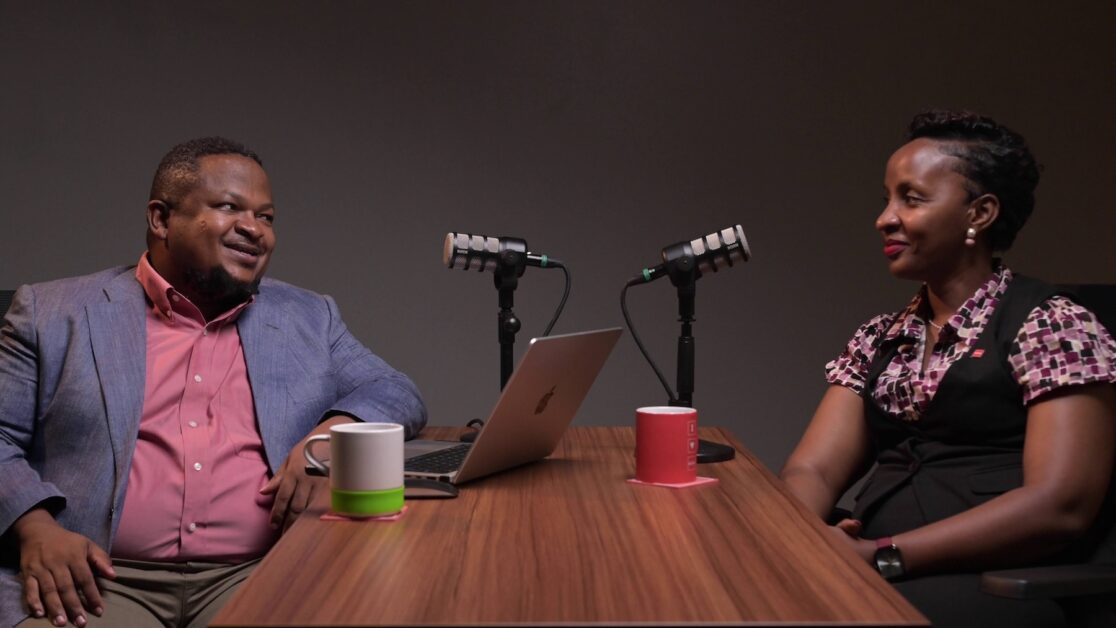
By Senior Five, I knew for sure—this is the career I wanted to pursue. I didn’t know the exact route yet, but I understood that if I took the right subject combination—Math and Economics—I could eventually find my way into finance. Namagunga gave me the structure and support to stay on that path, and by the time I joined MUBS for my B.Com, I was already clear on my goal. In fact, by the first year, after a career guidance session, I knew finance was the area I wanted to specialise in.
From the start, my journey has been focused and intentional. I’ve always been driven by the desire to show my dad that I could work hard, that I could calculate his profits, forecast performance, and deliver results. You know how it is with girls—we always want to show our dads that we’re sharp, capable, and determined. That’s been my story.
But even with that clear focus, my path took an unexpected turn. After university, I started my career as an auditor at Ernst & Young, where I worked for five years. Honestly, I never thought I’d end up in finance. People often assume audit and finance are the same, but they’re quite different. In audit, you get an external perspective—you show up at the client’s office and say, “I want to see these books, I need this trial balance.” You point out issues, suggest adjustments, and move on. That was the life I knew, and I had become used to it.
Then, one day, out of the blue, I got a call from Sarah Ekirapa, who was the Acting Head of Human Resources at FINCA Uganda at the time. She said, “Robinah, we have your CV, and we’d like to hire you.” I was shocked—I hadn’t even applied! To this day, I still don’t know how my CV ended up with her, but I decided to give it a shot. I went for the interview, and that’s how I crossed into finance—starting out as a Financial Accountant.
The transition wasn’t easy. Moving from audit—where I’d simply say, “Why is this number here? Please adjust it”—to actually sitting on the other side and figuring out where to post transactions was a real shock. It took me about a year to fully adjust.
But once I found my footing, I discovered that finance was the most fascinating and rewarding work I could have ever imagined. My background in audit actually became a huge advantage—it gave me a broader understanding. When someone asked me a question, I already knew what they were going to ask and how to answer.
Looking back, making the switch from audit to finance was one of the best decisions I’ve ever made. And through it all, the foundation I built—starting from my early days helping my dad—has been the driving force that shaped the CFO I am today.
And how did you get into auditing in the first place?
I actually started out as an intern at Citibank, back when Chinedu Ikwudinma was leading the team, and Rachel Dumba was the Head of HR. I was fresh from Makerere University Business School, and like many students, I was an intern—with intern pay and the simple perks that come with it.
At the time, we were all applying everywhere, just trying to get a foot in the door. I had a super first class—I was the best girl in my year at MUBS. That really helped, because the recruiters were looking for top performers. Citibank took me in as an intern, and then I applied to Ernst & Young (EY). I was fortunate to emerge as one of the top candidates, and that’s how I landed my first real job straight out of university. That’s how my career in audit began.
So, you never had to hustle the streets of Kampala looking for a job like many others do?
No, I never walked the streets of Kampala. But of course, I’d get those calls from my parents, saying things like, “Oh, if Kampala fails you, come back home.” But I kept telling them, “No, if you have the right performance, you don’t have to walk the streets.
Have you ever had moments in your career where you felt so overwhelmed that you thought, “Maybe I should just call my parents and go back home”?
Yes, in my career journey—absolutely. At Ernst & Young, it happened almost every month! I’d call my mom and say, “That’s it, I’m done. I’m coming home tomorrow.” And then she’d remind me, “Okay, you can always come back home, but is that really what you want to do?”
Click Here To Watch the Interview: https://youtu.be/sUQoaIoIjPM?si=V7Ag2Fh8tr1yDqch
My parents are both in business, very serious people, and they’d remind me that I couldn’t just sit around without a job unless I was ready to run their businesses. But deep down, I knew I wasn’t meant for that path—I was born for the career I’m in.
Of course, after those tough days, EY had this thing they called “evening drink-ups,” and somehow, after a good drink-up, I’d get back to normal and ready to face another day.
So, would you say the drink-ups were what kept you going during those tough times at EY?
Yes, those breaks, those drink-ups—they really helped. You know, the kind of breaks where the firm comes together and says, “We know the pressure is intense, but let’s take a moment, have a drink, and get back on track.” I realised those were so important. Without them, you could easily end up having a nervous breakdown.
Have you tried to bring that same approach to FINCA—creating moments for the team to take a break, bond, and ease the pressure, like the drink-ups you experienced at EY?
Yes, absolutely. Like they say, every journey has its lessons. I’ve learned from my worst experiences and my best experiences, and I’ve combined them into who I am today. That’s what makes me a unique CFO and a unique leader.
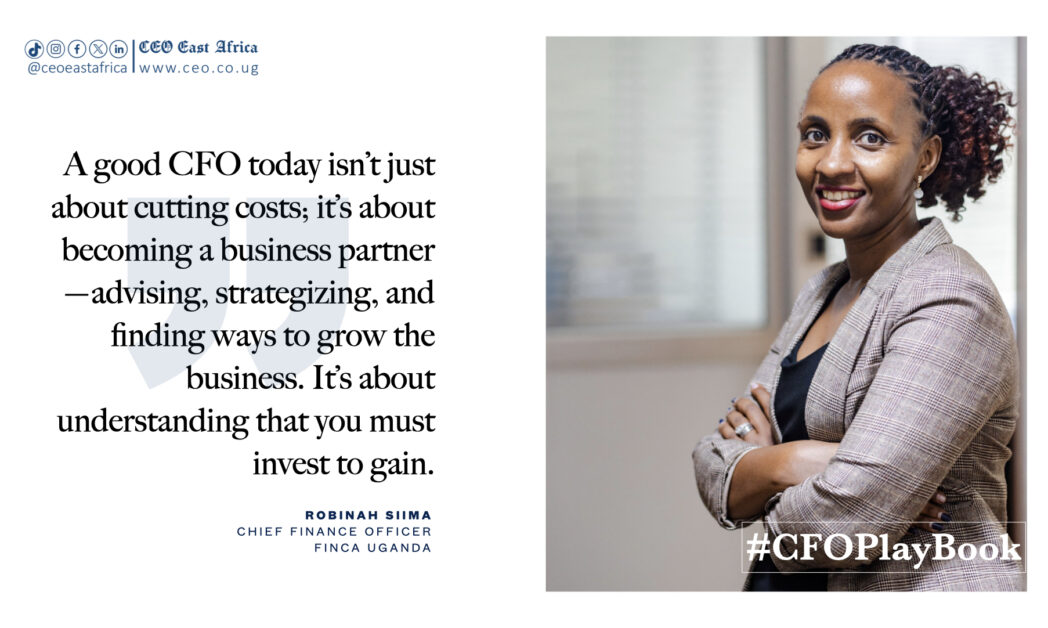
So if you step into FINCA on an average day, you’ll often find boxes of pizza around. We do a lot of celebrations—team-ups, drink-ups, pizza evenings. My assistant, Peter, even runs a pork business called the Pork Basket, so once in a while, we bring in pork for the team. It’s all part of our culture. We encourage people to walk around and eat, to create a vibrant, fun work environment where people feel connected, even in the middle of all the serious work we do.
I hope all that fun doesn’t end up in the interest rates you charge your clients!
No, no, no, it doesn’t—and it can’t. It’s all usually funded from my own personal pocket. So yes, it’s all personal time and funding from the CFO—nothing goes into interest rates!
That’s interesting. I’d love to hear more about your journey. Looking back, were there any specific moments or challenges that made you feel like you’d reached your limit? And on the flip side, what would you say are the key milestones that have defined your career so far—and why do you consider them significant?
One of the biggest challenges I faced, right from when I left school, was the transition from the academic world to the practical world. You know, you can have all this knowledge in your head, but when someone gives you a computer and says, “Do a presentation” or “Prepare a report,” and the work just isn’t coming together—you type, try, struggle—but it’s just not happening. And you’re running out of time. That transition from theory to practice was really tough for me. Part of that, I believe, is because of the theoretical way we’re taught here in Uganda.
Another unique challenge I faced was dealing with public perception. Sometimes people would look at me and say, “Oh, she’s just a hot girl chilling around,” yet deep down, I was working so hard and taking my career seriously. It was frustrating. I always felt I had to prove myself—show that I’m not just here for show, but I can actually deliver.
And then, of course, there’s the big one: striking the work-life balance. That has been a real challenge, especially at times when it affected my health. I’ve had medical complications that forced me to stop, step back, and completely reorganise my life.
So yes, these challenges have shaped me, but they’ve also taught me to stay focused, keep growing, and not let anyone’s perception define me.
Here’s a refined version of the question:
So do you ever go back and help your dad with the books—forecasting the numbers and supporting his business?
Yes, I still do. I’m still his adviser to this day—whether it’s about his business or his investments. Even now, when he gets some money, he’ll come to me and ask, “What can I do with it?” It’s a relationship that’s stayed strong, and I’m glad I can support him in that way.
And have you done a good job?
He’s actually one of the most successful men in the country, so I’d say I’m doing a pretty good job.
Does he pay you for your advice?
No, no, no—never. For him, it’s pro bono. That’s my way of giving back to my parents.
Okay, let’s shift gears a bit. Looking at your day-to-day routine—how do you structure your typical day or week? How do you stay organised in such a demanding role? And do you allow room for those unexpected or random things that come up, or do you stick to a strict plan?
Ah, the ad-hocs! For starters, I’m very organised. I’ve been this way for a long time, and I think it’s something that’s really been ingrained in me because of my career background. Working in audit, you had to be organised—otherwise, you’d end up running around in circles. So that mindset is now part of my DNA.
On a typical day, I wake up as early as 5 a.m. I’m the one who drops my kids off at school to make sure they have everything they need. I don’t delegate that responsibility—I feel it’s important to be involved in their daily routines.
I’m in the office by 8 a.m., and I’m probably the only HOD at my institution with a note board at my desk. Every week, I pin up what needs to be done, and I also maintain a digital tracker that shows what my team members are working on across the different units. It’s not that I’m micromanaging, but I believe it’s important to supervise and stay informed—know what your team is working on, and when to expect deliverables.
So on any given day, I may not ask my team, “What are you doing today?”—because I already know.
Of course, as a leader, half my time is spent in meetings, which means less time doing operational work. But I make sure that supervision is in place and that deliverables are being met on time. That’s how I stay on top of things.
I was going to ask this—and I’ll still ask, even though I think I know the answer already. You seem too organised, almost to a fault. How do you make sure that your approach doesn’t make it too difficult for your team to fail—so they still have room to learn and grow?
No, no—let me explain. Like I mentioned earlier in this conversation, I’ve had both good and bad experiences throughout my career, and each of them has been a learning point. I’ve worked in three major institutions, and each had its own approach to organisation.
For instance, when I was at FINCA as a junior staff member, my supervisor was the kind of leader who would say, “Please, schedule yourself, organize yourself—but just make sure you deliver the numbers.” That taught me the importance of self-discipline and taking ownership.
Then, when I moved to the Electricity Regulatory Authority (ERA), the culture was completely different. ERA was extremely organized. From the moment you clocked in, there was a meeting on Monday to debrief on how the entire week would go, and on Friday, there was another meeting to review what had been achieved. The communication systems were robust—systems after systems after systems.
So I learned from both extremes and found a way to merge those approaches into my own leadership style. That’s why I wouldn’t say I’m too organised or too serious. I appreciate that, depending on the role you hold, especially in finance, organisation is non-negotiable.
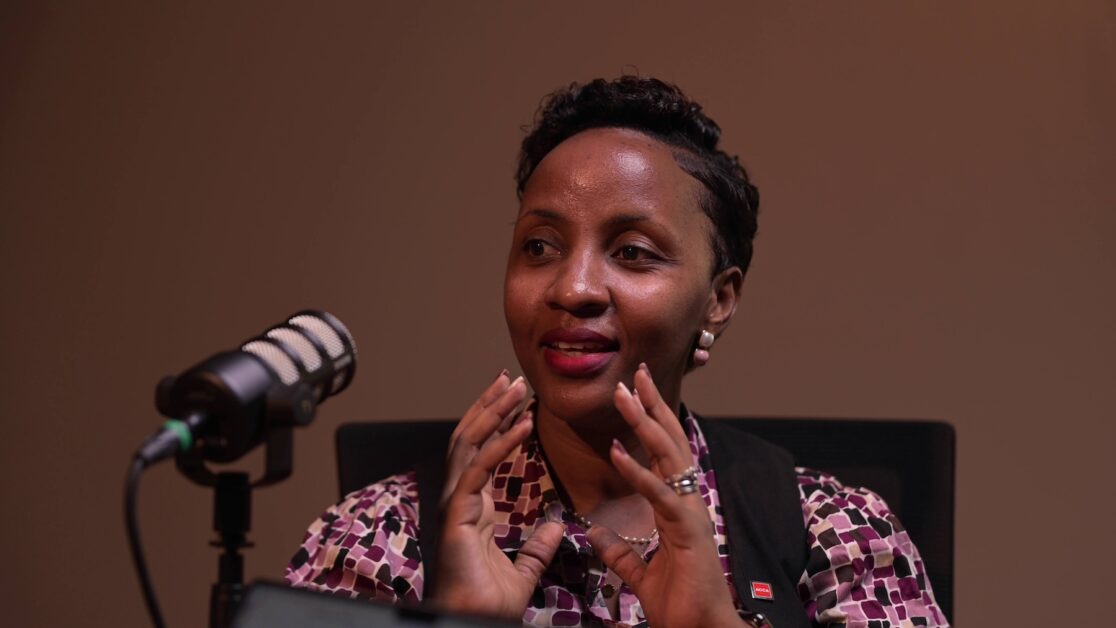
You see, finance is a very different department. If you miss a deadline, that’s it—you’ve missed it, and there are real consequences: fines, penalties, loss of revenue, destabilising stakeholders, or even compromising the stability of the institution. So the nature of finance demands that you’re organised. There’s no shortcut around it.
Given the strict nature of your work, it’s inevitable that there will be failures and setbacks from time to time. I’d like to understand—what is your personal survival strategy when you encounter those tough moments? How do you handle failures or challenges at a personal level, professionally, and also within your team?
Yes, my first strategy is simple but essential: I don’t break down. And by not breaking down, I mean staying mentally strong—being able to understand what went wrong, acknowledge it, and then ask myself, How do I get out of this?
If you’re clear about what went wrong and you can calmly think through how to resolve it, you’ve already begun your survival process. That’s why, for me, calmness is key. I stay calm, no matter what’s happening around me.
There are times when it feels like the roof is about to cave in—like when I’m racing to meet a deadline, and my assistant suddenly tells me the laptop has crashed. In the back of my mind, of course, I’m thinking, Should I throw this table at the ceiling and hope for the best? But on the outside, I stay composed. Because the moment I lose my cool, my team loses theirs, and then no one delivers.
So yes, my biggest survival strategy is calmness.
Second, I will make it a point to keep growing my knowledge. As a CFO, I’m the go-to person for solutions. If I don’t have the answers, then I can’t stay calm—I’ll just end up running around in circles. So, it’s both calmness and consistently sharpening my expertise that have helped me navigate tough moments.
Ah, so you’re the type who keeps singing even when the Titanic is sinking?
Yes, exactly! We’ll be the ones singing from the outside—keeping the team calm and steady. But at the back of my mind, I’m thinking, Oh my goodness, how am I going to fix this? That’s the balance—maintaining composure on the outside, even when inside, you’re already strategising your way out.
When all that pressure is building up inside—because on the surface you’re calm and composed, but internally, it must be a lot—how do you let it out? How do you release that pressure in a healthy way?
Yes, you know, one of the key lessons I’ve learned—and had to implement quickly—is the importance of turnaround time when making decisions. When something goes wrong, how long does it take you to accept that it’s gone wrong? And how long does it take you to implement a solution? That’s critical because the longer you delay, the worse the situation gets.
So, I move fast—whether it’s my work, my decision-making, or my thought process, I operate with a lot of speed. Sometimes my team even tells me, “You’re leaving us behind, you’re moving too fast!” And I’ll say, “I have to—there’s no time to waste.”
As for letting out pressure and stress—my go-to outlet is movies. I’m a huge movie person! It might sound strange, but I watch a movie every single day. That’s my thing. While others might read books or do something else, for me, it’s movies. It’s how I unwind, recharge, and keep my mind refreshed.
You mentioned earlier that you spent quite a bit of time in auditing before crossing over to finance. I’m curious: What were your first two or three engagements with an auditor like, now that you were on the finance side? Did it feel like you were too comfortable, like you were in familiar territory, or was it a different experience altogether?
Yes, and that’s such a great question—because it really was a unique experience for me. When you’ve worked in an external audit firm, and then you switch to a finance role, your first few engagements with auditors are some of the most stressful moments you can face.
The reason is simple: You know what you think the auditor should be asking, but you can’t tell them, “Ask me this!” And when they ask different questions, you’re sitting there thinking, Why are they asking that? Where is this even going?
I remember my first interactions—an auditor would come and say, “Hi, we’ve reviewed your financials, we’ve looked at your ledgers, and we’ve found ABC.” And I’d respond, “Okay… where’s the risk?” I was so focused on risk that I couldn’t even concentrate on the rest of their process. But they’d insist, “No, you have to focus on this issue.”
It took me a while to accept that I needed to slow down and engage with their perspective. In fact, that mindset struggle lasted for quite some time.
When I joined FINCA, our auditor was Deloitte, and I’ll always be grateful for that experience. Deloitte had a much calmer approach than what I’d been used to at EY. At EY, the pressure was intense—constant, high-speed, full-on. But Deloitte brought in this calm energy, this “Let’s discuss, let’s talk through this” style. It was the first time I’d experienced that, and it really helped me realise I needed to adjust my own approach.
In fact, I remember working with Jerry from Deloitte—he’s still my friend to this day. We had our fair share of ego battles: I’ll take this; I won’t take that. It took us about four months—yes, four months!—to finally settle down and find a collaborative rhythm.
So, it took you four months to finally agree that you needed to calm down?
Yeah, of course. And that was just an external audit. But alongside that, you also have an internal audit. And let me tell you, with internal audit, it’s a daily war—every single day.
Okay, that raises another interesting point. Having worked across different departments and organisations—and like you mentioned earlier, in finance and banking, it’s common to have a new auditor every two or three years. Given all these experiences—working with different people, different teams, and different styles—what have you learned from all these interactions? And how have they shaped or influenced your own leadership style?
My key learning from all these experiences has been this: there is no one-size-fits-all solution to a problem. Every situation, every organization, every department comes with its own challenges and requires its own unique solutions.
Let me give you an example. I started out as an intern at Citibank, then moved to EY—two completely different environments, with completely different challenges and ways of doing things. Then I joined FINCA, and even here, my journey has been full of shifts. I started as a Financial Accountant, and two and a half years later, I returned from maternity leave to find my boss had moved me into management reporting—my most dreaded position at the time! I had so much fear. Each of these roles has come with its own challenges, but also with opportunities to learn and grow.
And as you mentioned, we change auditors periodically in finance. I’ve had the chance to work with Deloitte, KPMG, and BDO, and each of them has its own unique requirements, methodologies, and approaches. They’d come in with their way of doing things, and I’d have my own way of working, so we’d have to find a compromise. At the end of the day, we’d remind ourselves: We all have the same goal—ensuring the financial health of the institution.
So for me, the biggest lesson has been to focus on the ultimate goal and then develop different approaches to reach it. There’s no single right way that works everywhere. You have to adapt, create solutions that fit the unique circumstances you’re facing, and keep the bigger picture in mind.
I’m going to make an assumption, and you can tell me if I’m right or wrong. I’ve been looking at your LinkedIn profile and trying to add up the years—you look young, and you are young. And yet here you are, CFO of a major financial institution in your category. That’s no small feat—especially in such a short time. So, tell me—how do you think this has been possible? What do you attribute your rapid rise to?
Thank you—that’s absolutely true as well. For me, I attribute this journey and my rise to focus. People define focus differently, but for me, it’s always been about asking myself: Where do I want to be? How do I want to see myself? And how do I want to be remembered?
I’m also very intentional about creating influence. I do a lot of mentorships, especially for young people and for women. I give talks, I participate in panel discussions, I do consultancies—because I want to inspire others and create a ripple effect.
It’s also true that I’ve achieved quite a lot in a relatively short time. I’ve earned all my academic qualifications—including my ACCA—within a span of just eight years. It’s been a fast, focused journey.
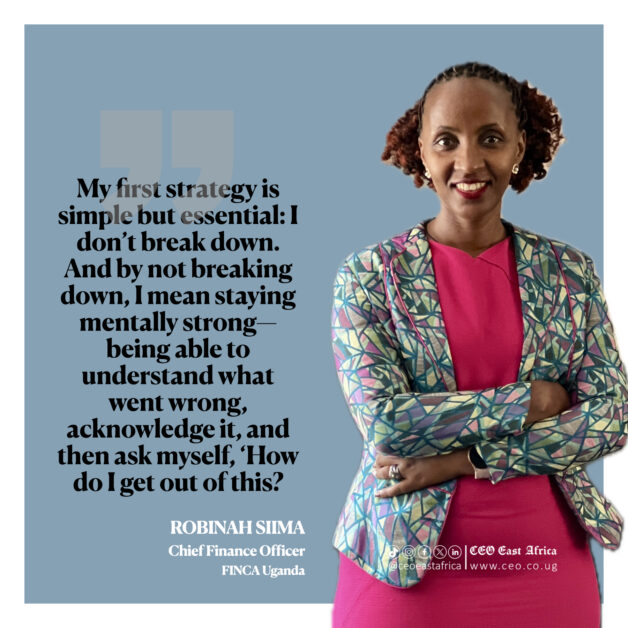
One thing I understood early on was that accelerated career growth requires intentionality. I’ve always been someone whose mind works quickly—I process fast, I think fast. But I also knew that being sharp and intelligent isn’t enough if you don’t have the right qualifications to match.
So I told myself: There’s no shortcut here. If I want to work for a multinational or a reputable institution, I need to get my ACCA. Who wouldn’t want to be affiliated with such a global brand?
I remember when I first wanted to apply for the CFO role at FINCA, my supervisor—who was very close to me—told me, You don’t have the qualifications yet. Take a few more years, go and study. And I said, Challenge accepted! I took it upon myself, studied day and night, and within a year, I got the qualification.
For me, it’s really about focus—knowing where you want to go, being intentional, and putting in the effort to get there. There’s no other way.
There’s a Bible verse that says, “To whom much is given, much is expected.” And I think that applies to you—when you’re moving fast, like an F1 car, the pressure and challenges pile up. So, as you’ve accelerated your career, what have been some of the biggest challenges you’ve faced? Especially as a woman in finance—an industry that’s still largely male-dominated. How have you navigated those challenges, and what lessons would you share with others, especially young women who might be struggling in similar situations?
Yes, I’ve faced challenges—and many of them aren’t unique to me. However, one thing that really stands out to me is self-empathy.
As a woman in this career, there’s always that voice in the back of your mind saying, But I’m a woman… I just came from maternity leave… Why is my boss giving me so much work? I went through that phase. I couldn’t tell my boss, but I felt it deeply.
I had my first child while I was still at Ernst & Young, right in the middle of all that pressure. And I remember thinking, Why doesn’t anyone understand what I’m going through? I experienced postnatal depression. I would go home and cry—really cry. And yet, at work, I had to show up and perform. My male supervisors didn’t seem to understand, and I honestly don’t think, at that time, there was much awareness around postnatal depression or what new mothers go through.
Imagine—you walk in after maternity leave, your body has changed, everything feels different, and you’re still expected to deliver. You’re typing up reports while silently crying inside. That was one of my biggest challenges.
Eventually, when my daughter turned a year old, I left audit. She was born in December 2015, and I left EY in September 2016. I don’t know if, by then, I had fully learned to cope, but I had to find a way forward.
How have I navigated that? By proving myself—showing that if you give me the space, the time, the trust, I will deliver. That’s been my commitment.
When I had my two younger kids during my time at FINCA, I learned to balance. I would tell the global teams, Give me a moment to nurse the baby, and I’ll come back and finish the task. And I’d deliver, even if it meant working at 2 a.m.
For me, it’s been about showing that as a woman, you can deliver. You can be trusted. That’s been the core of my journey.
Let’s talk about ACCA. How has it shaped your career? Would you say it turned things around for you? And if you were to stand in front of an audience—let’s call it Finance Sunday—and preach to people about why ACCA matters, what would you tell them?
Yes, and of course, it would be so unfortunate to end this conversation without talking about the role of ACCA—it’s had such a huge impact on my career, both in ways that are obvious and those that aren’t spoken about enough.
Let me tell you—our university education system here in Uganda isn’t designed to give you that deep, practical experience. That’s something you only truly get from ACCA.
Beyond practical skills, there’s also the brand—the global recognition that ACCA carries. I first learned about ACCA when I was at Ernst & Young, because there, it was a big deal. Everyone would ask, Why aren’t you part of a global brand? At Namagunga, we had a motto: head held high, you move on. And so I told myself, How do I walk into this world, how do I top the tables, without this brand?
For me, ACCA was a big deal. At the time, their tagline was everywhere, and it resonated with me. I was fortunate to be in an environment—Ernst & Young—that exposed me to it, and I’m grateful I took up the challenge to study ACCA, even as I was balancing so much else: children, work, everything.
And yes, ACCA shaped me into the professional I am today. The practical experience it gives you is unmatched. Let me tell you, my friend, we really felt those papers! I was an auditor, and even then, I failed one of the papers twice. Can you believe it? There was even a time I picked up the phone and called ACCA in the UK on the +44 line. I remember asking, Why am I failing this paper for the second time?
The lady on the line, with a very calm and kind voice, simply told me, Maybe you need to try harder. Maybe you need to be more practical. Don’t just write what you’ve crammed—step out of the book and tell us your story in the real world.
I remember even telling her, But I’m in Sub-Saharan Africa! And she said, That’s fine—but you need to be practical. Give us what’s happening in your world. Don’t just repeat the textbook.
That was a turning point for me. From then on, I understood: it’s not about cramming theory, it’s about applying what you’ve learned in the real world. And my life has never been the same since then. Never.
So if I were to stand and preach at a Finance Sunday, I would tell everyone this: ACCA is not just a qualification—it’s a mindset. It’s a way of thinking, of applying knowledge practically, and of proving that you are part of a global community of finance professionals who don’t just know things, but who do things. It’s a passport to opportunity, and if you’re serious about building a career in finance, you can’t ignore it.
One of the things I keep hearing about the finance profession is pressure—pressure—pressure. If you had a magic wand, and you could change things—whether here in Uganda or even globally—what are some of the key things you think need to be done differently within the profession? Looking back at your own challenges and experiences, what changes would you recommend to make the profession better, healthier, and more supportive for finance professionals today?
It’s really just one thing for me—and I say this while reflecting on how much the world has changed today. Back in our time, we could only do ACCA here at MAT. You had to physically come, pick up your books, and attend classes. If you were an auditor in the field—say, in Namanve at a manufacturing company—you had to drive all the way back to MAT to attend a physical class.
But the world has evolved. With the changes brought by technology, remote work, and flexible learning, I believe the biggest shift needed is to enable access—to allow the brilliant minds out there, the ones who have the vision and the dream to pursue this course, to do it from wherever they are.
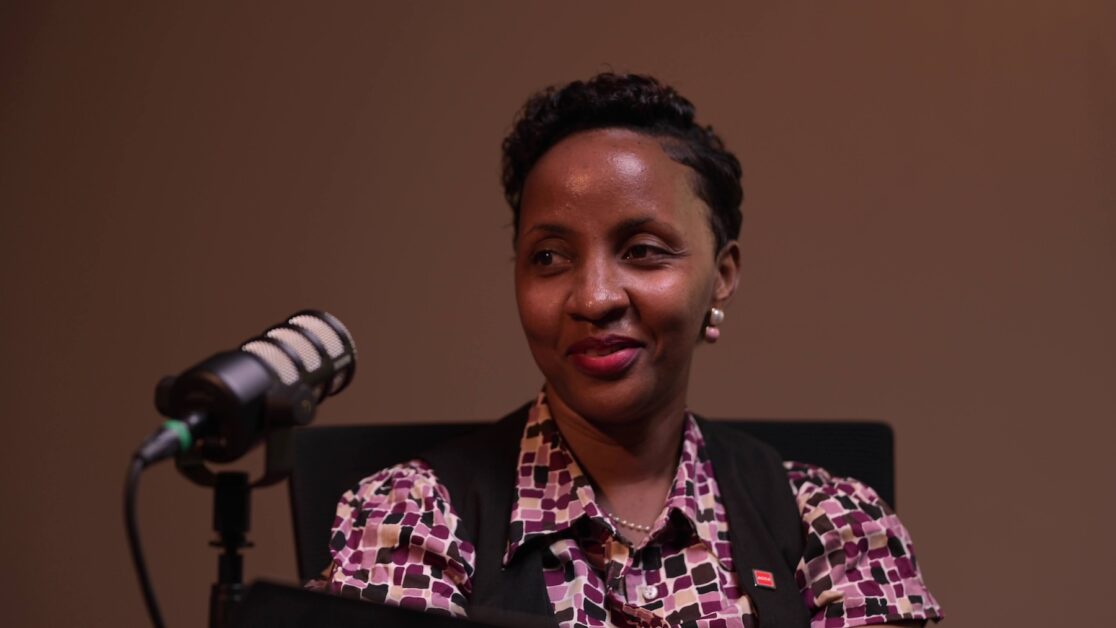
I think ACCA started rolling this out about two or three years ago, and I hope it’s going well. I know a workmate of mine who’s studying ACCA online, and even taking exams remotely. That’s a huge step forward, but it needs to continue evolving.
I’ve also had the chance to study with universities in places like India, and everything there is seamless—fully online, no matter where you are. That’s the direction we need to keep pushing for in the profession.
So for me, it’s about accessibility—keeping the door open for people, whether they’re a mother breastfeeding at home or someone working in a remote location, so they can learn, take exams, and advance their careers without unnecessary barriers.
Would you say you’re the kind of CFO who focuses more on cutting costs, or are you more driven by increasing revenue?
No way—absolutely not! It’s interesting because that’s the traditional mindset of a CFO. A typical CFO five years ago was all about cutting costs. But the role has evolved. The CFOs who are still focused only on cutting costs are no longer surviving in the industry.
Today’s CFO is a business partner. We’re no longer just looking at the numbers and saying, Let’s trim this, let’s reduce that. No—we’ve transformed our teams from being just reporting accountants who analyse costs to being advisers who ask, What can we do to grow the business? And you can’t grow a business by only cutting costs—you have to invest.
As strange as it may sound, I’m now the kind of CFO who works on business proposals and hands them over to the commercial teams, saying, Please, go cut loan prices so we can grow the business. That’s the shift—understanding that you have to put something in to get more out.
So no, I’m not the kind of CFO who’s all about cutting costs. I’m the kind of person who’s focused on growing revenues.
Let’s say you had the chance to meet your younger self—not necessarily back at Namagunga when you were still figuring things out, but maybe during your early days at MUBS or when you had just started out in audit. Knowing everything you know now—about the profession, the challenges, and where you want to go—what advice would you give your younger self? What should they be doing, or not doing, to prepare for a fruitful and fulfilling career in finance?
Yes, it’s really one thing. If I could go back and meet my younger self, I’d tell her: Go seek practical exposure as early as possible.
If I could turn back the hands of time, I’d have pushed myself—or worked with my parents—to get that early exposure to the practical world. Because the truth is, the theory alone isn’t enough.
We’ve seen it—people who get top, super first-class degrees, but then they struggle in the real world, because the pressure and expectations at work are completely different. The deliverables are not what you read in the textbook.
So I’d tell my younger self: Don’t wait until your final year, or the last month of the last year, to get that experience. Start now. Talk to your relatives, your teachers, your lecturers—find opportunities to intern, shadow, volunteer—anything that gets you into the real world early.
Looking back, I think about all those hours I spent in my room watching Telemundo, and I just wish I’d used that time to build practical skills instead. That’s the advice I’d give my younger self.
Given your experience—not just with your own journey, but also with the young professionals coming into the business, even beyond your department—do you feel the finance schools and the wider education system are preparing graduates well enough for the demands of the real world? Over the last five years, have you seen an improvement, a decline, or stagnation in the quality of graduates entering the workforce?
I’d say there’s been a slight improvement. A lot is happening now—young people today are being exposed to more academic opportunities, and in terms of qualifications, they’re coming out stronger.
For instance, it’s not uncommon to see someone graduating from university and already having ACCA, especially for those whose parents can afford it. We even have students now who are doing ACCA and their university degrees in parallel. It’s happening a lot more than before.
The challenge, though, is that while they’re studying all these courses, they often miss the practical side. And that’s one key thing I’ve learned over the years—you really need both the theory and the practical experience to succeed.
But definitely, the quality of graduates today is better than in our time. They are more exposed, and there’s a lot more happening—especially in the IT space. They have access to global knowledge, and they will challenge you.
In fact, if they come into an organisation and find that, as a leader, your mindset isn’t up to speed, you risk falling off your seat! So yes, the quality coming out is much stronger, but there’s still a gap when it comes to practical, hands-on experience.
How do you manage these Gen Zs? People often say there’s a remarkable difference between Gen Z and those above 35—in how they approach work, how they see the world, and what their priorities are. Do you see that difference yourself, and how do you navigate it as a leader?
Yes, I know that some leaders really struggle with this challenge—managing Gen Zs. We smile about it, but it’s real. It’s a real challenge when you can’t differentiate between a Gen Z and someone who’s had a tougher upbringing, because as a leader, it’s your job to figure that out—and it’s not easy. It’s a hard job.
But I would say, quite comfortably, that I haven’t faced that challenge as much. And I think that’s partly because of my unique position: age-wise, I’m not too far from the younger teams, but because of my serious, career-oriented background and my focus levels, I also lean into the older space.
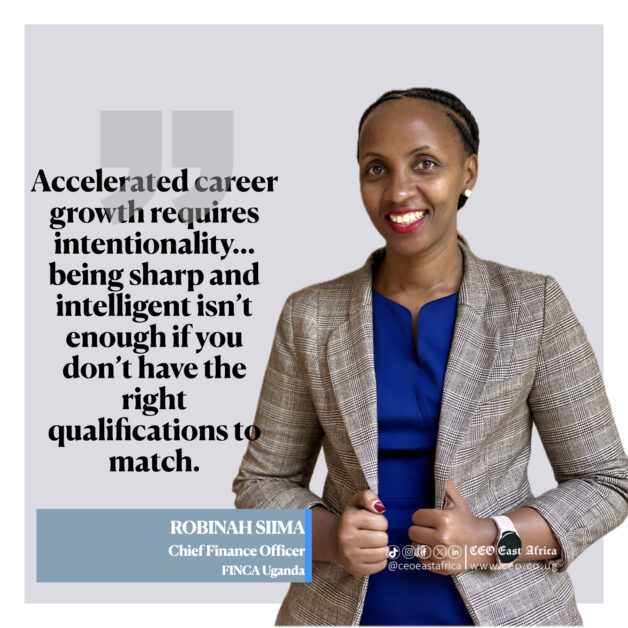
So, how have I managed? I think I’m a bit of a two-personality leader. There are times when I have to put myself in my Gen Z team’s shoes. I’ll ask myself, Why is this person thinking this way? Like, when I ask someone why they’re late, and they tell me, I had things to do, I don’t shout. I don’t blow up. I sit them down and say, Look, I need results. You must deliver. How you do it—God knows for you—but the results must come in.
The approach is very different. It’s not the same way I’d handle someone from a different generation or background. And as a leader, you have to be constantly aware of that. You have to think about it all the time—how to adapt your leadership style to get the best out of your team.
Let me ask—just peeking behind that beautiful smile, what’s worrying you? What are the things about the industry, the economy, or even the future that keep you awake at night? I know your kids aren’t crying anymore, so what’s keeping you up these days?
They cry—my youngest daughter is four, so yes, I’m still a mom! But in terms of the workspace, my biggest worry is waking up one day and realising I can’t keep pace with the world anymore.
Thanks to institutions like ACCA, we have so many learning opportunities—CPDs, trainings, updates. Even through events hosted by Deloitte, like dinners and drink-ups, we get to stay informed about what’s happening in the industry. And I always wonder: Why do some people miss these things?
The world is moving so fast. We’re still thinking about IFRS 9 and IFRS 16, and now we’re already into ESG. While we’re trying to wrap our heads around ESG, AI is everywhere—it’s taking over.
You might find a CFO still stuck in manual reporting, while the world has already sprinted ahead. The pace is relentless, and we’re all just trying to keep up.
That’s what worries me the most—falling behind. Even when I go a week without reading something new, I start to feel anxious, thinking, What if something important has changed and I’m not aware?
That’s the pressure of the industry today—staying current, staying relevant.
Before we wrap up—because we could go on for hours!—I want to touch on one last thing. The finance industry has long been associated with financial crimes. I was reading the Police Crime Report and other reports, and these issues keep coming up. From your perspective, do you think things are getting better? Are finance professionals becoming smarter at catching these crimes, or are the criminals staying a step ahead? How do you think the industry can better manage and prevent financial crimes?
Thank you. And yes, that threat is very real—whether it’s increasing fraud or cybersecurity risks, it’s a reality we can’t ignore. And the truth is, it’s only going to get more complicated.
Why? Because we’re moving into the AI space, where at any given point, you might have a Trojan virus sneaking into your systems. Someone could hack your data, and money could move without anyone noticing. That’s why I say it’s only going to get worse.
But that doesn’t mean financial institutions are getting worse. On the contrary, we as leaders are getting better every day. The challenge is that the pace at which criminals are evolving is just too fast—faster than most institutions can adapt.
So it’s up to us as leaders to ask: How fast do we need to move?
In the past, a financial institution would have had just a risk department and an IT team. Today, you’ll walk in and find an information security officer, a systems hacker, and entire teams dedicated to cybersecurity.
Every day in the CFO space, I get test emails—fake emails sent by my own information security team to see if I’ll fall for them. For example, I’ll get an email saying, CFO, my invoice wasn’t paid—if I open it, my PC could get locked. And it’s all designed to train us, to make sure we’re aware.
This is happening every week now. So yes, institutions are advancing and developing new measures to protect customer funds and stakeholder investments.
But we, as individuals, also have to keep up—by staying informed, training constantly, and investing in innovations that help us detect, prevent, and respond to threats. That’s the only way we stay ahead.
Great. As we wrap up, let me ask for your parting shots. In light of everything we’ve discussed today, what do you think needs to be done to make the finance profession stronger—both here in Uganda and beyond? What advice would you give to finance professionals on how we can improve the financial landscape, nurture better leaders, and make the profession truly play its part in creating a better world?
Yes, I think there are a few key things we need to do to make the finance profession stronger—both for the future of the profession and for the broader financial landscape.
The first is investing in our finance teams. If you look at most finance teams today, they’re still largely focused on the traditional roles—sitting behind a desk, processing invoices, paying suppliers, and just thinking about those operational tasks.
We need to shift that mindset. We need to invest in transforming our finance teams from traditional roles into advisory teams. That’s the future of the profession.
The market today is moving rapidly towards data analysis, and that’s where financial professionals need to be. Finance should be about reviewing data, advising the business on where to go, how to grow, and where to invest. We need finance teams to become business partners—actively supporting and advising other departments.
But to get there, we need two things: leaders who are willing to train and mentor their teams, and institutions that are willing to invest in both the teams and their leaders. It’s a full cycle. If we don’t manage that well, the profession will stagnate.
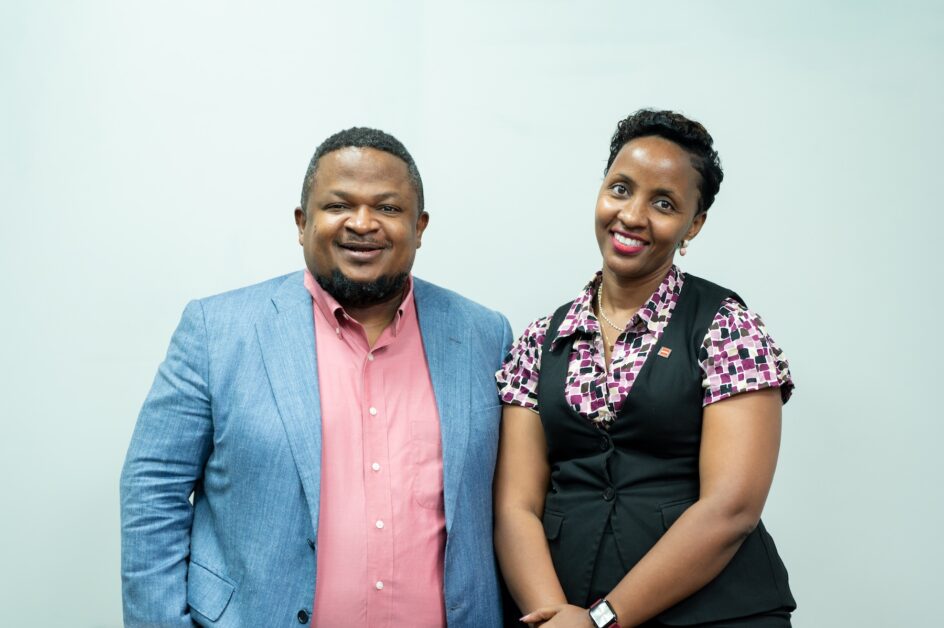
That’s why we must invest—whether it’s through academic qualifications, certifications, or on-the-job training for teams.
And finally—this is so important—we need to give people a chance. One thing I’m very grateful for is that when I was joining FINCA Uganda as CFO, our current MD, James Onyutta, took a chance on me. That made all the difference.
Leaders need to spot potential in their teams. HR teams need to identify talent early—look at someone at a junior level and say, This is the person we’re building for the future. And the institution must be willing to invest in developing that person into the leader they can become.
Because we might have brilliant professionals sitting in our teams today, but if we don’t see them, nurture them, and invest in them, we risk losing them—and the profession will stagnate.
So yes, it’s about investment, mentorship, training, and giving people a chance. That’s how we build a stronger finance profession, better leaders, and a better future.
But let me ask—you are the ones allocating resources for the business. Are you actually looking after your own teams? Are you making sure enough is being invested in yourselves—your people, your systems—or are you more focused on cutting costs, saving, and reporting profits for shareholders? Because what I’m hearing is, sometimes after five years, you look back and realise, Oh no, we forgot to invest in ourselves. Is that something you’ve seen happen in the finance space?
Yes, that’s a classic statement we hear all the time—“What if I train them and they leave?” But the counter to that is even more powerful—“What if you don’t train them, and they stay?”
That’s why, when you asked me what we need to change in the profession, I said one of the most critical things is that training shouldn’t just be for the juniors—it has to happen at all levels, including for the leaders. It’s an all-round investment.
So no, we’re no longer in a space where it’s just about cost-cutting. The mindset has shifted. We’re now asking, Where do we want this institution to be five years from now?
Should we be cutting costs today, or should we be investing in innovations—in the people, in the technology, in the future?
Of course, we still ask for justifications. We’re not just throwing money around. We’ll ask, Why do you need this money? And if your reason is valid—if it’s tied to growth, efficiency, or innovation—we support you.
That’s the role of finance now. We work alongside different projects, institutions, and departments to make decisions together. It’s no longer just about saying no—it’s about partnering, assessing together, and making informed choices that drive the business forward.
Share this content:
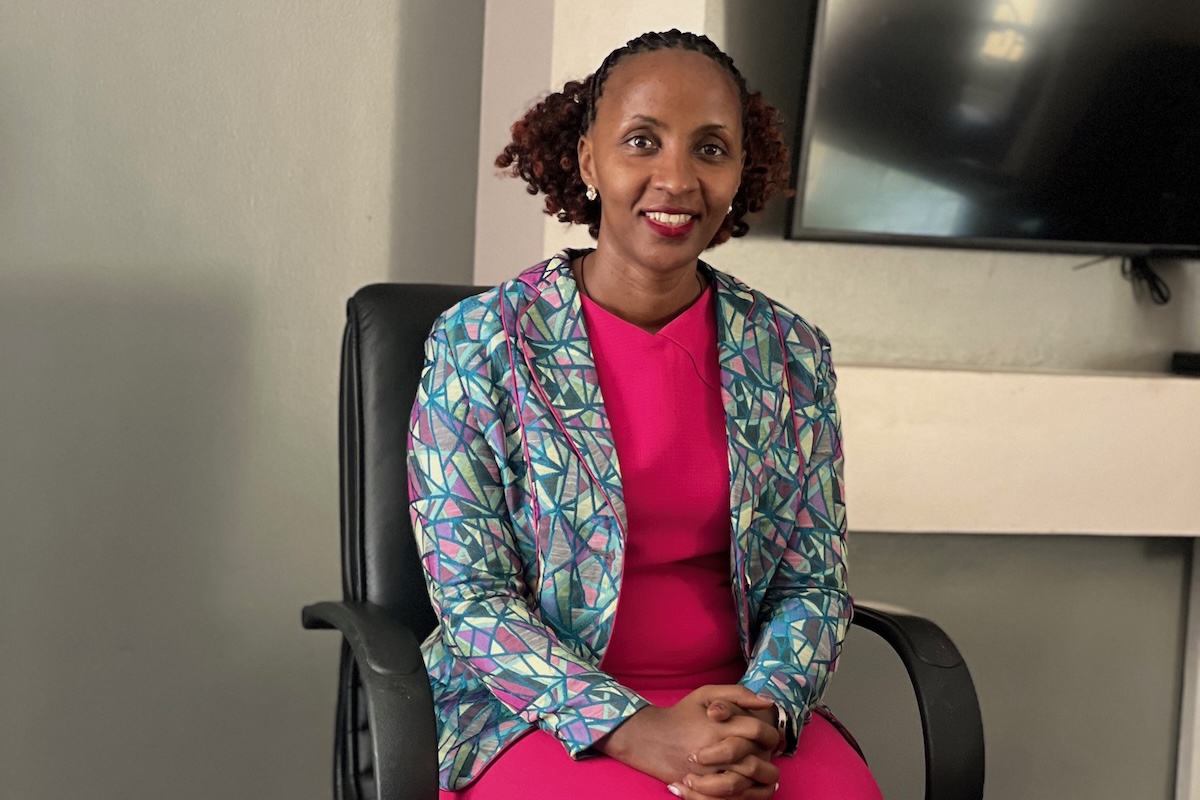
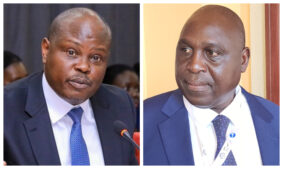
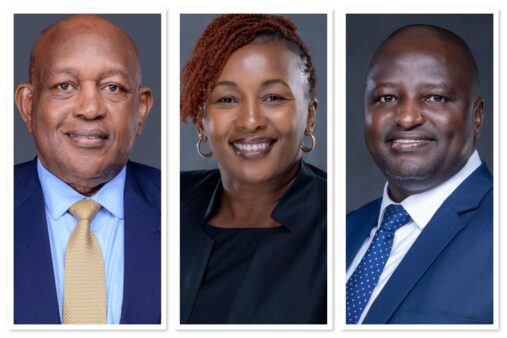
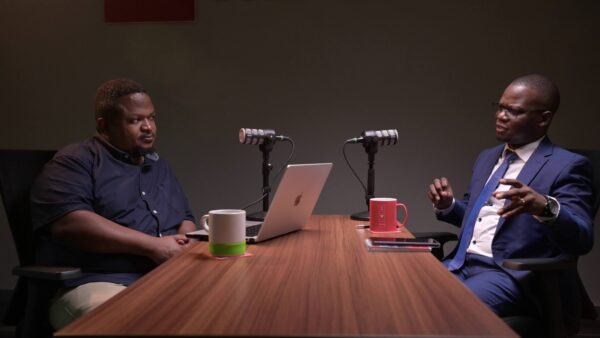
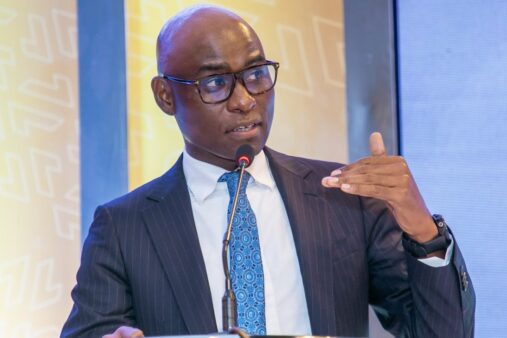
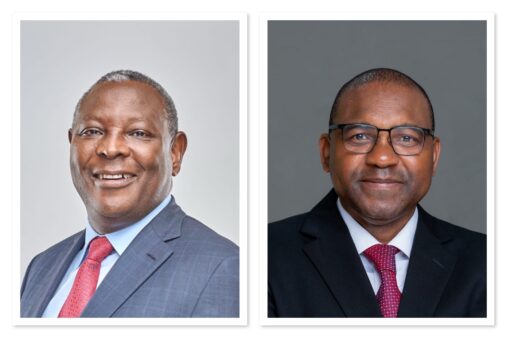




Post Comment